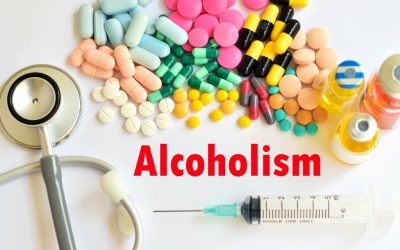This may include recommendations for maintaining a healthy lifestyle, such as engaging in regular exercise, managing stress, and seeking support from family and friends. Additionally, genetic counselors can refer individuals to other healthcare professionals or support groups that specialize in addiction treatment and recovery. Genetic predisposition refers to an increased likelihood of developing what is alcoholism a particular condition or disease due to specific genetic factors. In the case of alcoholism, individuals with a family history of the disease are believed to have a higher genetic risk. Numerous studies have identified certain genes that may contribute to this increased risk, although the exact mechanisms are still not fully understood.
How Families Anonymous Works
Collectively, these protective factors play a vital role in preventing alcohol misuse. If your body reacts poorly to moderate amounts of alcohol, you’re less likely to develop AUD. For instance, some people (especially in East Asian populations) have a version of the ADH1B gene that breaks down alcohol into acetaldehyde quickly.
Can You Test for Genetic Alcoholism?
Alcohol dehydrogenase (ADH), the enzyme responsible for the first step in the conversion of alcohol to acetaldehyde, for example, is actually produced by a family of genes, each of which affects different properties of the enzyme. Again, while genetic inheritance plays a strong role in AUD’s development, it is not always a determining factor. Many people with a genetic predisposition never develop the disorder, highlighting the importance of environmental factors such as trauma, peer pressure, and the family dynamics someone grows up conditioned by.
- We’ll explore how genetics and family history influence alcoholism, how they impact the recovery process, and why understanding these factors is vital for effective treatment.
- Other than genetics, there are a number of risk factors for developing alcohol use disorder.
- In addition to medication assisted treatment, a patient’s care can include substance abuse counseling, mental health therapy and psychiatry.
- Genes related to alcoholism can affect the way a person metabolizes alcohol, their response to its effects, and their risk of developing an addiction.
What are the risk factors for AUD?
But, relying on alcohol for stress relief can quickly become a slippery slope, leading to increased tolerance, more frequent drinking, and eventually dependence. And for those with a family history of alcoholism, understanding these patterns can be empowering. It can help them make informed decisions, seek support early, and break generational cycles. A review of studies from 2020, which looked at a genome-wide analysis of more than 435,000 people, found 29 different genetic variants that increased the risk of problematic drinking. Alcoholism is caused by the interactions between many factors, including genetic, environmental, social, psychological, and experiences like trauma or abuse.
But to scientists, that apparent heritability suggested that some genetic component underlying vulnerability to alcohol problems was being transmitted from generation to generation. A study in Sweden followed alcohol use in twins who were adopted as children and reared apart. The incidence of alcoholism was slightly higher among people who were exposed to alcoholism only through their adoptive families. However, it was dramatically higher among the twins whose biological fathers were alcoholics, regardless of the presence of alcoholism in their adoptive families. Identical twins, who share all their DNA, consistently show higher rates for AUD, underscoring the significant role of genetics.
Lifestyle Changes for Individuals with Genetic Predisposition
- By understanding an individual’s genetic predisposition to certain side effects, doctors can adjust the medication dosage or choose a different medication altogether to ensure the safety and well-being of the patient.
- Improved understanding of alcohol dependence should therefore help dissect factors involved in the development of related conditions.
- The complex nature of alcohol abuse involves both genetic and environmental components.
- It involves behaviors and patterns of consumption that can lead to negative consequences for both the individual and those around them.
- However, a genetic predisposition does not mean someone will always develop a condition.
- Higher parental monitoring and a stable community environment can lessen the influence of genetic factors on alcohol use.
If a person has close relatives who have struggled with alcohol addiction, genetic testing can help identify their own risk and guide them towards making informed decisions about alcohol consumption. Overall, understanding the genetic predisposition to alcoholism is a complex and ongoing area of research. By unraveling the role of genes in the development of the disease, scientists can make important strides in prevention and treatment efforts, ultimately leading to better outcomes for individuals affected by alcoholism. By studying the genome, researchers can gain a better understanding of the genetic factors that contribute to the development of alcoholism. This knowledge can help in the development of targeted prevention and treatment strategies.
Researchers are exploring how genetic information can guide medication choices and therapy strategies for more effective Alcohol Use Disorder management. For example, individuals with certain genetic profiles may respond better to specific medications or therapies. Treatment for alcoholism typically involves a multifaceted approach that addresses the physical, psychological, and social aspects of the disease. Detoxification, often the first step in treatment, helps individuals safely withdraw from alcohol under medical supervision. Following detoxification, rehabilitation programs, such as inpatient or outpatient treatment, can provide individuals with the necessary tools and support to achieve long-term recovery. While alcoholism itself is a legitimate medical conditionreferred to by cliniciansas an alcohol use disorder, it’s important to note that taking the first drink is a choice, particularly when alcoholism runs in the family.
Sheridan holds an MBChB (MD) from the University of Pretoria and an MPhil in Applied Ethics (Bioethics) from Stellenbosch University, where he focused on compassionate clinical responses to substance use disorders (SUD). The first step when seeking help for problematic alcohol can alcoholism be inherited use is detoxification to help manage withdrawal symptoms. Withdrawal can be severe, sometimes leading to seizures, hallucinations, or delirium tremens (DTs) in cases of heavy dependence. For this reason, medically supervised detox is the best, particularly in a hospital, rehab facility, or specialized detox center.
His multifaceted work underscores his dedication to advancing both the treatment of addiction and general internal medicine. Our licensed medical staff specializes in managing withdrawal https://global24.world/is-alcohol-good-for-you-a-new-report-adds-to-the/ safely and comfortably, helping clients break free from alcohol dependency while preserving dignity and stability during this critical phase of treatment. Genetic testing for alcohol use disorder (AUD) is still in its nascent stages and faces several limitations.

